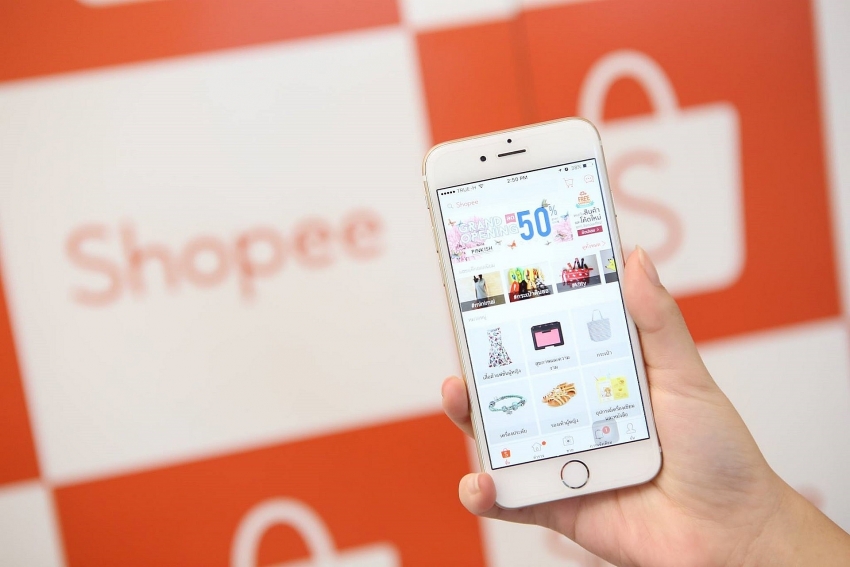E-commerce and FMCG markets shaken by outbreak
 |
| E-commerce and FMCG markets shaken by outbreak, illustration photo |
Nguyen Huy Hoang, commercial director at market research firm Kantar Worldpanel Vietnam, told VIR that the spread of the virus has led to an increased health consciousness among Vietnamese consumers. In order to stay safe and protect themselves, people are avoiding crowds in their daily activities.
As such, shopping traffic could be reduced, perhaps impacting retail and fast-moving consumer goods (FMCG) sales in the short term.
He added that spending on dining out and other activities outside the home would be reduced during the epidemic, but FMCG for in-home consumption is expected to sustain growth. Household cleaning and hygiene products such as hand wash, sanitiser, and tissues have also experienced a rise in sales.
Healthy foods like fruit and fruit juices that help strengthen the immune system will see an upward trend, and consumers also have a tendency to stock instant foods such as instant noodles, sausages, and snacks, especially in areas with confirmed cases.
“In terms of retail, smaller, clean, nearby shopping spaces such as street shops, minimarkets, and convenience stores will be temporarily preferred to wet markets or larger supermarkets,” Hoang said. “This situation is also significantly increasing the number of home deliveries and online shopping transactions”.
Ralf Matthaes, managing director of market researcher Infocus Mekong, also said that e-commerce should benefit considerably as delivery services help negate potential infection. Pre-packaged FMCGs such as cereals and soups should see an overall spike in demand as there may be a fear of infection regarding fresh produce, although medical experts declared some time ago that infection via this method would be highly unlikely, even from items imported from China.
“In the short term, e-commerce deliveries will see a substantial increase, and also receive new consumers, who historically have not used e-commerce for groceries or FMCG,” said Matthaes. “However, once fears dissipate, human nature takes over and consumers will be back at the markets in due time.”
On the other hand, due to delays in import and export, there are challenges for suppliers and traders to produce, distribute, and stock goods.
This is more likely to result in an uplift in prices which might demotivate consumer spending during the fight against the virus.
Online traders are also facing some issues as many products sold online are imported from China. The epidemic has caused a slowdown in cross-border e-commerce activities, so online shoppers have to wait longer for their orders to arrive.
Meanwhile, a representative of Shopee Vietnam said that China’s extension of the Lunar New Year holiday as part of efforts to stop the virus from spreading further has delayed shipments of overseas products.
Kantar Worldpanel’s Hoang said that the impact of this outbreak in 2020 might also accelerate trends already observed last year.
Firstly, it could increase health and hygiene consciousness among Vietnamese consumers, which further drive the development of hygiene products for personal care and home use. These products were previously not in high demand, but are expected to become more popular as consumers are getting used to buying these items in high numbers.
Secondly, it is expected in 2020 that e-commerce will take a bigger share of the market. Thanks to its convenience and the advantage of less physical contact, the online to offline and e-commerce delivery models fit well with consumers’ needs during this time.
Online shopping platforms and delivery services are expected to witness a growth acceleration in both shopper base and incremental spend, and increasing expenditure from existing online shoppers, he added.
Lastly, with emerging channels such as minimarkets, convenience stores, and e-commerce growing in popularity, there could be a continuing shift from traditional shopping behaviours to omni-channel and multi-channel shopping, reinforcing the rising omni-channel trend in retail and FMCG markets.
Furthermore, Matthaes added that the slogan “Made in China” has always been a source of contention in Vietnam, largely due to historical factors rather than food safety and hygiene issues. However, the current epidemic may give the consumer more to think about, as they want to know more about the origins of a product before they buy. This suggests huge potential for “Made in Vietnam” as a marketing tool.
What the stars mean:
★ Poor ★ ★ Promising ★★★ Good ★★★★ Very good ★★★★★ Exceptional
Themes: COVID-19
- 67 million children missed out on vaccines because of Covid: UNICEF
- Vietnam records 305 COVID-19 cases on October 30
- 671 new COVID-19 cases recorded on October 1
- Vietnam logs additional 2,287 COVID-19 cases on Sept. 21
- People’s support decisive to vaccination coverage expansion: official
Related Contents
Latest News
More News
- Kurz Vietnam expands Gia Lai factory (February 27, 2026 | 16:37)
- SK Innovation-led consortium wins $2.3 billion LNG project in Nghe An (February 25, 2026 | 07:56)
- THACO opens $70 million manufacturing complex in Danang (February 25, 2026 | 07:54)
- Phu Quoc International Airport expansion approved to meet rising demand (February 24, 2026 | 10:00)
- Bac Giang International Logistics Centre faces land clearance barrier (February 24, 2026 | 08:00)
- Bright prospects abound in European investment (February 19, 2026 | 20:27)
- Internal strengths attest to commitment to progress (February 19, 2026 | 20:13)
- Vietnam, New Zealand seek level-up in ties (February 19, 2026 | 18:06)
- Untapped potential in relations with Indonesia (February 19, 2026 | 17:56)
- German strengths match Vietnamese aspirations (February 19, 2026 | 17:40)

 Tag:
Tag:


















 Mobile Version
Mobile Version